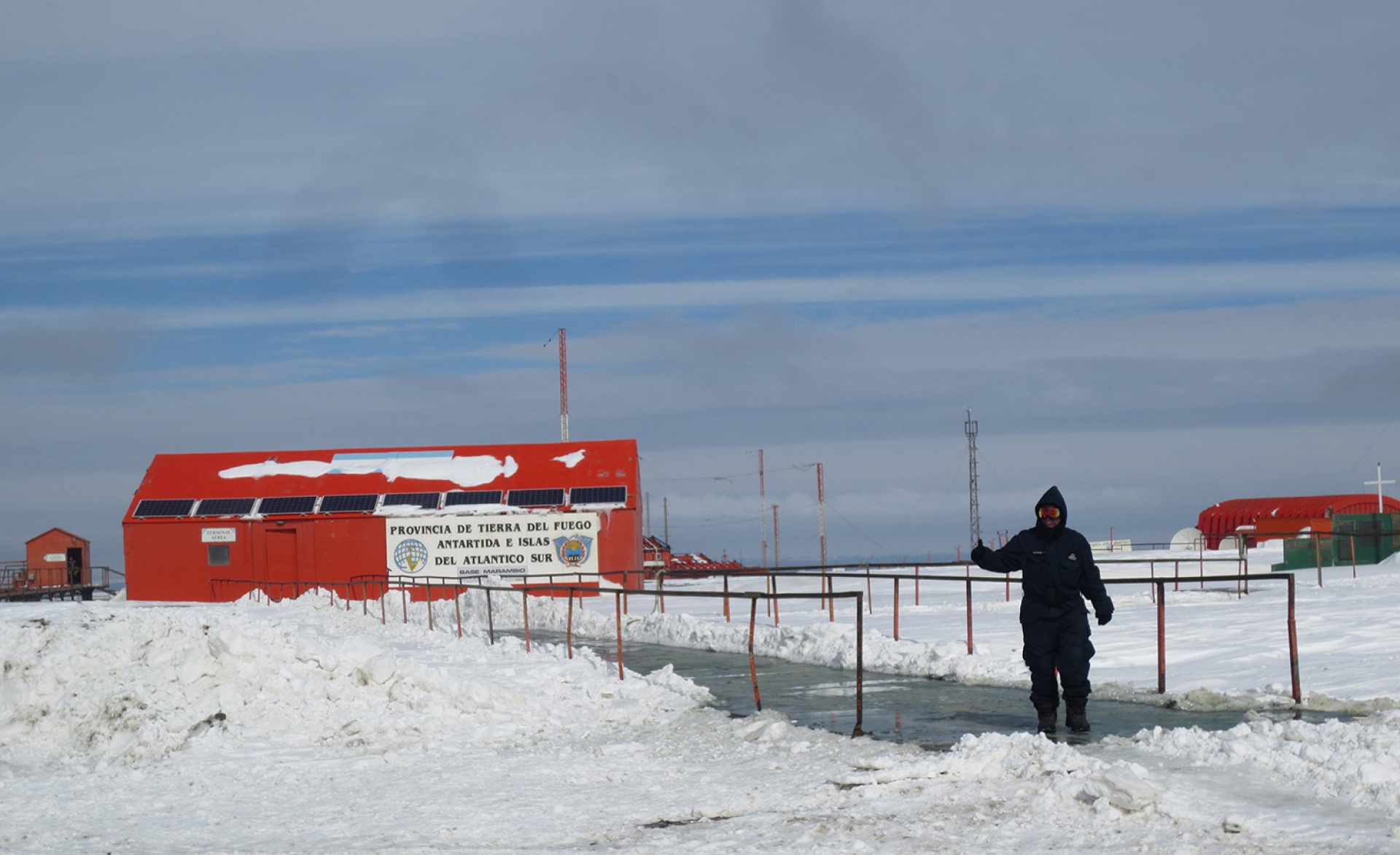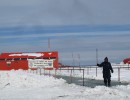Today, October 29th, marks the 55th anniversary of the foundation of the Vicecomodoro Marambio Air Base in Antarctica, a fundamental enclave for logistics and scientific research on the White Continent, and a pillar of Argentine sovereignty in the Antarctic Sector.
The Marambio Base was established in 1969 thanks to the efforts of the ‘Patrulla Soberanía,’ a group of Argentines who, armed only with picks and shovels, built the first land landing strip on the Antarctic continent. This milestone broke the isolation of the region, which until then could only be reached in summer, and exclusively by sea. Since then, Marambio has been Argentina's gateway to the White Continent and a crucial support for the scientific development and defence of Argentine interests in Antarctica. Its name, as well as that of the island on which it is located, honours the Argentine Air Force pilot Gustavo Argentino Marambio, who in 1951 flew with the Avro Lincoln ‘Cruz del Sur’ aircraft from Río Gallegos to the San Martín Base, carrying out an emergency refuelling launch.
Over the years, the base has received a new crew from the Argentine Air Force every October, taking over from the previous one after a year of living together in extreme conditions. The crews and pilots of the C-130 Hercules weapon system operate year-round to support the air bridge between mainland Argentina and Antarctica, a vital link for the base and for the deployment of personnel and supplies to and from the Marambio facility.
The daily activity of the base includes the operation of the runway and flight services, compliance with environmental regulations for the preservation of the Antarctic environment, and the operation of the Meteorological Centre. In addition, the base provides logistical support to national and international scientific missions, and participates in rescue missions, medical evacuations and search operations in the region.
During the summer months, the base experiences an increase in population due to the arrival of scientific camps. The Argentine Antarctic Institute organises research in disciplines such as glaciology, biology, historical archaeology and palaeontology, which are vital to the study of Antarctic conditions and the Antarctic ecosystem.
The Marambio anniversary reminds us of the challenges and sacrifices undertaken by ‘The Sovereignty Patrol’, those pioneers who in extreme conditions laid the foundations for sovereignty and knowledge in the most inhospitable continent on the planet. They are an example of dedication and effort that deserves to be honoured.

